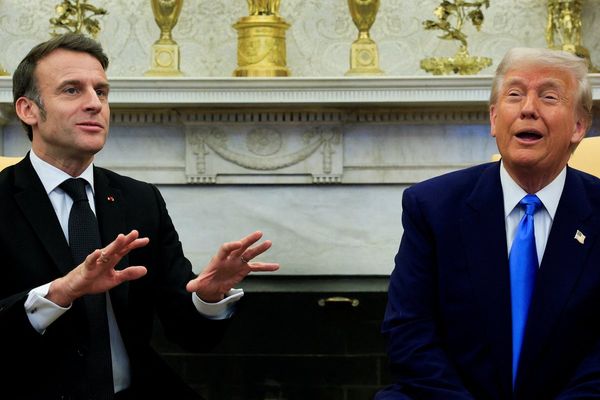
Liz Truss has survived less than two months in Downing Street, consigning herself to the history books as the country’s shortest-serving prime minister.
Announcing her decision at the Downing Street lectern on Thursday afternoon, the outgoing PM confirmed there will be another leadership election to be completed within the next week.
The Tory leader resigned following a chaotic 45 days in government which she set in motion with an explosive mini-Budget, sending the pound into freefall and markets into turmoil; and brought to a grinding halt with a record of serial U-turning and two new Cabinet ministers – both backers of her now-likely replacement, Rishi Sunak.
After her seven week spell in office, we take a look back at some of the events that map the dizzying premiership of Ms Truss.
Queen Elizabeth dies
Queen Elizabeth II died on 8 September at Balmoral Castle in Ballater, just two days after she invited Ms Truss to form a government in her name from the same address.
The death of the Queen, which brought her 70-year reign to a mournful close, thrust Ms Truss into the heart of a epoch-making national event almost before she had time to find her feet as prime minister.
Westminster Abbey witnessed a gathering unique in world history, with a congregation of more than 2,000, including Ms Truss and every living former prime minister, US president Joe Biden and scores of world leaders for the televised funeral watched by hundreds of millions worldwide.
Parliament was adjourned for the 10-day period of mourning. No ministerial speeches were given, no government announcements, no photo-opportunities or interviews. Ms Truss was pushed temporarily out of the spotlight as all eyes turned to a new head of state, Kind Charles III.
In her first address to the nation as prime minster, Ms Truss described the late Queen as the “rock” on which modern Britain was built.”
The mini-Budget
On 23 September, former chancellor Kwasi Kwarteng announced his disastrous mini-Budget, including a surprise proposal to axe the top rate of tax for the highest earners.
Mr Kwarteng’s roll of tax-slashing measures, which the government had chosen not to submit to the scrutiny of the Office for Budget Responsibility (OBR), spooked markets, saw the pound slump to an all-time low and forced the Bank of England to launch a £65bn rescue of pension funds.
Plans to cut the 45p tax rate for those earning upwards of £150,000 were abandoned within two weeks, with the ex-Treasury chief saying it had been a “huge distraction” from an otherwise “strong package” of measures.
But the U-turns did not stop there. Abolishing the planned rise in corporation tax, cutting the basic rate of income tax, the two-year energy bill support plan, scrapping the planned dividend tax hike, VAT-free shopping for international tourists, freezing alcohol duty, easing of IR25 rules for the self-employed – all gone.
Gone too was her chancellor, Mr Kwarteng, and the co-author of her book, Britannia Unchained — a treatise that pushes a radical approach to economics to ward off Britain’s “inevitable slide into mediocrity”.
Unshackled from the Bank of England and OBR, mediocrity seemed a pleasent alternative to a sharp fall in the value of the pound, surging interest rates, burgeoning inflation and the prospect of mortgage repayment rises potentially in the thousands of pounds.
After just 38 days in No 11, Mr Kwarteng was dismissed, making him the second-shortest-serving post-war chancellor. He was replaced by Jeremy Hunt, who unceremoniously took a sledgehammer to his predecessor’s Budget just weeks after it was announced.
Polls
Progressively dire polling results appear to have defined Ms Truss’s premiership – one of which was a YouGov survey which found she was as popular with the public as Prince Andrew.
In another blow, a Redfield & Wilton poll released just four days ago showed Sir Keir Starmer’s Labour an astonishing 36 points ahead of the Tories – the highest lead ever recorded by any pollster for any party.
And her resignation appears to have done her no favours in the polls, with just 2 per cent of Britons saying they considered Ms Truss to have been a “good” or “great” prime minster.
Calls for a general election also reached fever pitch following her brief departing statement on the doorstep to No 10.
Indeed, The Independent’s petition calling for a national ballot to be held in the UK surpassed 250,000 signatures this evening. When it rains, it pours.
Tory MP rebellion
Less than a month into the premiership, some Tory MPs were reported to have been “openly talking” about how Ms Truss might be removed.
On 3 October, former No 10 chief of staff Nick Timothy, who worked under Theresa May, predicted it would be difficult for Ms Truss to survive.
Come 16 October, political journalists were firing-up Boris Johnson-era spreadsheets tracking the number MPs publicly calling for the PM to go, reaching a total of 17 before Ms Truss took the knife to her own leadership.
On Wednesday night, however, the rebels were told they faced losing the party whip if they joined Labour in voting to guarantee parliamentary time for a bill to ban drilling for shale gas.
“This is not a motion on fracking. This is a confidence motion in the government,” an email to Conservative MPs read.
Despite a government win, however, any victory was consumed by claims that Tory whips had physically manhandled and bullied backbenchers into backing the prime minister’s administration.
Labour MP Lloyd Russell-Moyle tweeted: “Just seen Tory whips manhandling a crying Tory MP into their lobby for fracking. You couldn’t make this toxic stuff up, nasty to see the Tories at work, if this is how they treat their MPs spare a thought for the country.”
Suella Braverman departs the Home Office
Earlier that day, Suella Braverman quit as home secretary, declaring that she had “serious concerns” over repeated breaches of key pledges to voters.
Former transport secretary Grant Shapps was appointed to replace her, following intense backbench pressure on Ms Truss to broaden political representation in her cabinet, which initially excluded all supporters of her leadership rival Mr Sunak.
Liz Truss resigns
At 1.30pm on Thursday, Ms Truss told the nation it was clear she could no longer deliver the “mandate” she had been given by her party just weeks earlier, and announced her resignation.
Sir Graham Brady, chair of the 1922 committee, has explained that Friday 28 October is the date Britain’s next prime minister will be announced.
As it stands, former prime minister Boris Johnson, former chancellor Mr Sunak, Commons leader Penny Mordaunt and Ms Braverman are also expected to appear on the ballot paper.
Hopefuls must clear the high bar of 100 MPs’ nominations by Monday. The final choice goes to members in an online ballot closing on 28 October.







